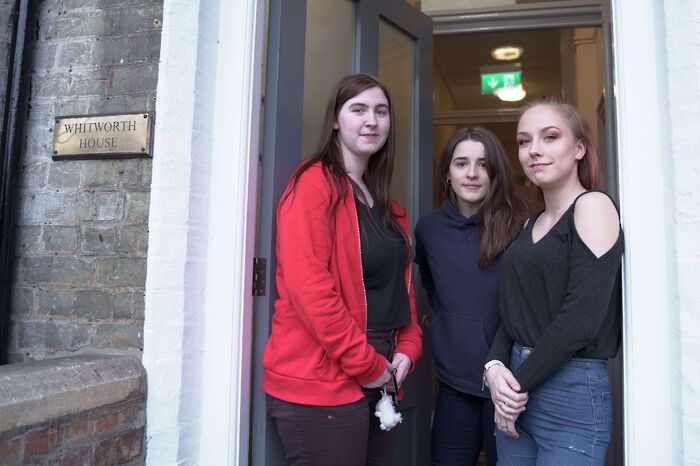Cambridge's Disciplinary Procedure
Cambridge students march to Reclaim the Night
Protesters chanted against gendered and sexual violence and showed solidarity with marginalised women

As many as 200 women and non-binary students stormed through central Cambridge yesterday for the annual Reclaim the Night march, in a powerful expression of feminist solidarity.
Protestors chanted “Women unite, reclaim the night” and “Say it once, say it again, no excuse for violent men”, as they marched from Parker’s Piece to Grafton Centre, then onwards through Market Square, finishing at the Pitt Building. The march was followed by a vigil at Great St Mary’s Church, where the sex worker collective SWARM gave a keynote speech, speaking about the need to stand with sex workers.
The protest received mixed response from the public. Many greeted the marchers with cheers and shows of support, with some even joining in. However, there were occasional booing or even verbal harassment from hostile onlookers.
Among the banners on display were “Break the silence, end the violence”, “I deserve to feel safe”, and variations on “Me Too”. Marchers showed solidarity for trans women and non-binary people with banners reading “Support your sisters, not just your cisters” and “No TERFS”.
Cambridge Reclaim the Night is one of many protests which take place across the UK every year, protesting gendered and sexual violence. The movement began in 1977 with the Leeds Revolutionary Feminist Group, partially in protest at the official response to the ‘Yorkshire Ripper’, where the police were slow to act, and focused on telling women not to go out at night when 13 women, most of whom were sex workers, were murdered.
In speeches given at last night’s vigil, Current CUSU Women’s Officer Claire Sosienski-Smith and incoming Women’s Officer Kate Litman both drew attention to the origins of the march, and the legacies of feminist work in Cambridge. Laura Douds, Anglia Ruskin Students’ Union President, also spoke about the different problems facing women and non-binary people.
The speeches emphasised that being told not to go out a night is not a viable option for women and non-binary people working night shifts, or for sex workers who are left particularly vulnerable by the criminalisation of their profession.
At the march, there was a collection for the Whitworth House fund, a hostel that houses vulnerable women and victims of domestic abuse, which is currently facing closure due to lack of funding. The speeches addressed the need to break down boundaries between the university and the wider Cambridge community.
The Reclaim the Night march was for self-defining women and non-binary people only, but a parallel panel discussion, A Call to Men, was organised by CUSU for men who wanted to show solidarity.
 Interviews / You don’t need to peak at Cambridge, says Robin Harding31 December 2025
Interviews / You don’t need to peak at Cambridge, says Robin Harding31 December 2025 News / Unions protest handling of redundancies at Epidemiology Unit30 December 2025
News / Unions protest handling of redundancies at Epidemiology Unit30 December 2025 Comment / What happened to men at Cambridge?31 December 2025
Comment / What happened to men at Cambridge?31 December 2025 Features / ‘Treated like we’re incompetent’: ents officers on college micromanagement30 December 2025
Features / ‘Treated like we’re incompetent’: ents officers on college micromanagement30 December 2025 Theatre / We should be filming ADC productions31 December 2025
Theatre / We should be filming ADC productions31 December 2025









